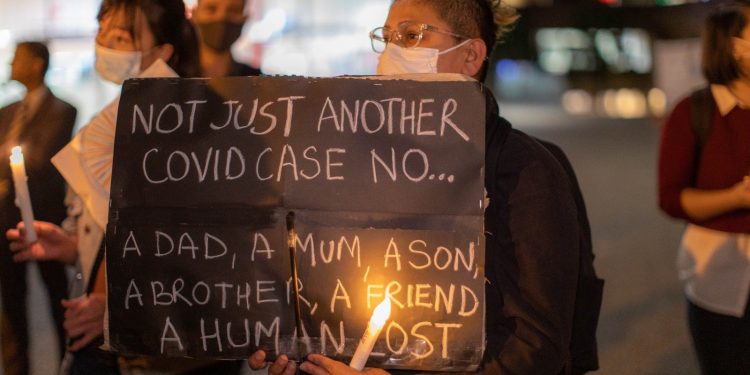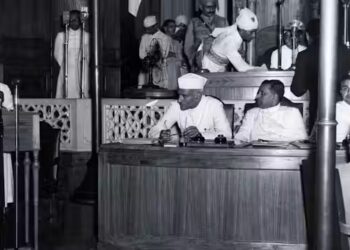Fortress Australia has kept Australians away from their loved ones for more than a year. We should all have been allowed to come home much earlier to prevent the kind of deadly tragedies we see in India. Stranded Australians around the world have paid a terrible cost and are still paying – financially, mentally and emotionally.
Dr Nisha Thapliyal
Image: Naseem Khan
The vast majority of us have been left to fend for ourselves since March last year. We have relied for information and help on online communities scattered across the globe. Time after time, I have seen complete strangers reach out across incredible distances to try and make an impossible situation slightly more bearable for someone. But our government has been Missing in Action particularly when we look at the incredible arrangements made by other countries – including those smaller and poorer than Australia – to repatriate their citizens during this neverending pandemic.
After 10 months in Mumbai last year, I was lucky enough to be judged vulnerable on health grounds (I am a lifelong asthmatic) and offered an Air India ticket by the Australian High Commission. I was privileged enough to afford the exorbitant price. So my return was determined by a combination of luck and vulnerability – but not my right to return as a citizen.
Since coming back in January, I have watched the situation in India predictably deteriorate further with great sadness mixed with anger and helplessness. It feels like the vast majority of Australians stranded outside have been reduced to nameless, faceless numbers and dollar signs. For over a year, we have been ignored, dismissed, mocked, blamed, and now threatened with fines and imprisonment for wanting to come home.
Our current border policy for stranded Aussies is full of words like biosecurity, disease control, and risk mitigation. Yet we have a quarantine system that is barely fit-for-purpose as highlighted by leading international and national medical experts. I do not know how much more suffering and tragedy it will take for Fortress Australia to open her gates and become a place of mateship and humanitarianism again. I pray this day will come soon for the sake of our collective humanity.
I spent 10 months in Mumbai, India during the Covid19 pandemic last year. When the Indian government first announced the lockdown, we watched one government after another go to great lengths to repatriate its citizens. I was sure that our turn too would come. After all, mateship was one of the first words I learned when I came to Australia. However, as weeks and then months passed, it became clear that I was on my own, like tens of thousands of Australians stranded in India, and around the world. I registered with DFAT, wrote unanaswered emails to the Consulate, and wrote emails to my elected representatives who answered with platitudes. With no help and little advice in sight, I joined 15 social media groups along with other Australians trying to figure out an affordable and guaranteed way to get back between constant changes in arrival caps and transit airport policies. On these websites, I heard devastating stories from stranded Australians around the world. I found incredible mateship and generosity from people trying to help each other out despite their own terrible circumstances- but no tickets.
I wrote to the High Commission again about my deteriorating health due to rising air pollution in Mumbai. Two months later, I received a phone call with an offer of a ticket on an Air India flight. I had 3 hours to arrange funds to pay whatever price AI charged for the ticket and travelled less than 48 hours later to Sydney. All though I feel lucky and grateful for the privilege of being able to return, I cannot help but wonder about the arbitrariness and lack of transparency that have dominated belated repatriation initiatives. Other than money and political connections,
Since my return in January, I have watched the situation in India predictably deteriorate further with great sadness mixed with anger and helplessness. It feels like the vast majority of Australians stranded outside have been reduced to nameless, faceless numbers and dollar signs. All of us should have been allowed to come home a long time ago.
Instead, we have been dismissed, mocked, attacked, and now threatened with fines and imprisonment for wanting to come home?
Our current border policy for stranded Aussies is full of words like biosecurity, disease control, bans and fines . When words like human rights, compassion and human dignity also enter the vocabulary of our politicians, then perhaps Australian citizens will be allowed to return home.
Nisha Thapliyal, Stranded Aussie (Mumbai, India, March 2019 to January 2020)
The views and opinions expressed in this article are those of the authors and do not necessarily reflect the editorial views or position of NRI Affairs.
Follow NRI Affairs on Facebook, Twitter and Youtube.











